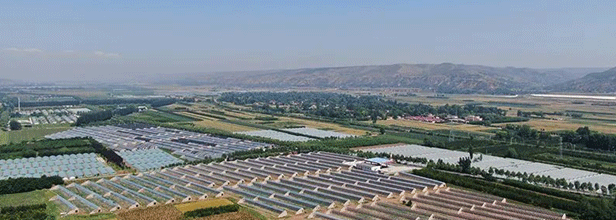In the first three quarters of 2024, Pingliang City has achieved an impressive 11.8% increase in vegetable production, positioning it as the top performer in Gansu Province. The city’s agricultural sector has been rapidly evolving, thanks to a strategic focus on expanding production capacity, enhancing quality, and extending the vegetable supply chain. This growth has been underpinned by the region’s emphasis on modern agricultural technologies and sustainable practices.
Key Developments in Pingliang’s Vegetable Industry
Pingliang’s success can be attributed to a series of strategic initiatives aimed at bolstering the vegetable production industry. One of the most significant aspects of the city’s approach is the establishment of large-scale, modern agricultural parks and facilities. For instance, by the end of October 2024, Pingliang had planted over 51,200 hectares of vegetables, yielding 917,000 tons. The city’s vegetable industry has surpassed its annual goals, with a total industrial chain value of 3.64 billion yuan.
Key projects, such as the construction of 12 modern agricultural industrial parks, including the Jinwei River and Kongtong Districts, have transformed the region into a hub for efficient vegetable farming. In addition, new facilities for growing vegetables have been developed across several areas, including a significant 6,783-acre expansion in the last quarter. These parks aim to promote the sustainable cultivation of high-demand crops, like peppers, pumpkins, and cabbages.
Pingliang has also pursued aggressive efforts to scale its vegetable production, particularly in high-altitude areas suitable for summer vegetables. For example, the construction of new facilities has led to the establishment of several large-scale farming bases, including 16 bases covering over 36,500 acres, dedicated to the cultivation of crops like potatoes, leeks, and peppers.
Investments in Technology and Infrastructure
Investment in agricultural technology has been a key priority for Pingliang. In 2024, the city implemented several cutting-edge projects, including the promotion of new vegetable varieties, innovative cultivation techniques, and the development of integrated seedling production bases. A total of 184 new vegetable varieties were introduced to the region, and the city’s seedling production capacity reached an impressive 285 million plants.
The establishment of new vegetable processing plants and the expansion of existing facilities have further bolstered the city’s agricultural capacity. Notably, Pingliang has expanded its vegetable processing capacity by 24,900 tons, with 14 new signed investment projects worth over 440 million yuan. The introduction of these projects has significantly increased the city’s competitiveness in the vegetable market, both locally and nationally.
Green Technology and Sustainability
Sustainability and environmental responsibility are also high on Pingliang’s agenda. The city has seen the successful introduction of green pest control technologies, ensuring that the majority of vegetables produced meet the high standards for safe, sustainable farming. Furthermore, Pingliang has been keen on promoting certification for its products, with several new vegetables—such as tomatoes and peppers—earning green food certification. The region’s commitment to sustainable agricultural practices ensures that the vegetables produced are of the highest quality while also being environmentally responsible.
Pingliang’s Path Forward in Vegetable Production
Pingliang’s remarkable 11.8% growth in vegetable production showcases the city’s strategic investments in agricultural infrastructure, innovation, and sustainability. As the region continues to focus on enhancing the vegetable supply chain, expanding production capacities, and implementing cutting-edge agricultural technologies, Pingliang is poised to lead the way in both vegetable production and the sustainable development of the agricultural industry in Gansu Province.
Pingliang’s success offers valuable lessons for other regions aiming to develop robust, modern agricultural sectors that are capable of meeting the growing demand for high-quality vegetables in China and beyond.































